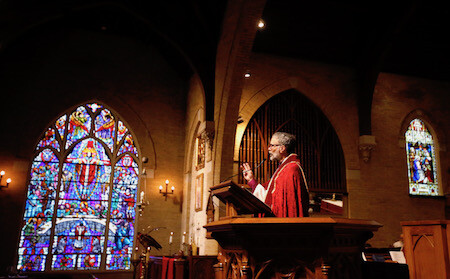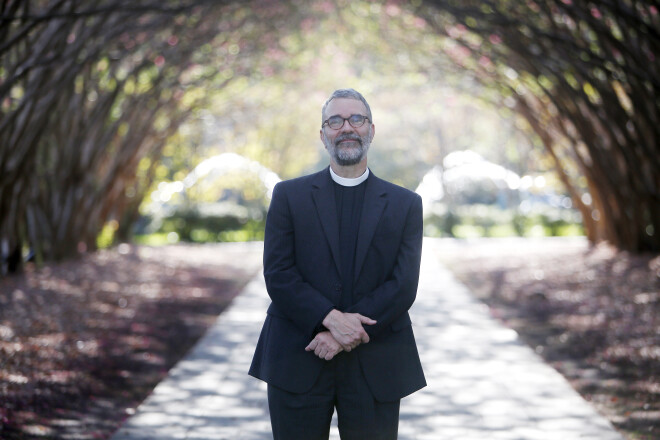As I have described in detail before, I believe a bishop should be apolitical. In questions like geopolitics in Asia or the details of the tax code I have no expertise (though I have opinions, as do you!) My criteria are these: does the issue touch members of this diocese directly and is a theological issue involved? Thereby I hope not to presume to be a political commentator….but events prove to make this reticence hard…several items in the recent news fit the criteria, and in deeply depressing ways…
The opioid epidemic, now a national emergency, affects all classes and places, but its impact is undeniable in poor parts of our country, for example in east Texas. We learned recently that certain government officials, and recently ex-officials, have worked with the pharmaceutical industry, with the help of copious amounts of cash, to impede the ability of the DEA to stop the flow of illegal Oxycontin and other narcotics into our population. The expose has claimed that this was a deliberate plan by those involved who had a motive of profit. One recent editorialist in the New York Times noted that a pusher who causes 150 people to be addicted on the street goes to prison- a pharma lobbyist who addicts 150,000 gets a promotion…The congressman at the center of all this was the administration’s nominee to be our drug czar…
More recently we learn that chemical companies have successfully lobbied to reinstate organophosphates known to cause nervous system damage in children (chlorpyriflos) in pesticides one might come in contact with on a golf course or a can of Raid. (The chemical in question is of a kind related to nerve gas developed in Nazi Germany). The damage to infants born in north central Texas will not be limited to red or blue households.
(In fairness, the subsequent Commission on addiction has come up with helpful early recommendations, and, Ben Carson at HUD has shown more awareness of the environmental risks children are exposed to).
But my second criterion is that a theological issue should be involved - what would that be? It is what the New Testament calls “powers and principalities.” Wrong is not only done by dastardly people trying to do harm. It is also done by ordinary people doing their jobs. It can be aided by ideas which is many other contexts are quite defensible, but which in this case are applied in an insidious way. The expression has to be with the subtle cocktail of structure, habituation, and rhetoric, within and without us, which come to tilt us and our efforts toward the corruption that runs throughout our fallen world. Such is the application here of the idea of “deregulation,” which in many political contexts is valid. But the flow of narcotics to the streets and the flow of such a nerve agent to the young are not in the cause of freedom.
Peace,
+GRS





